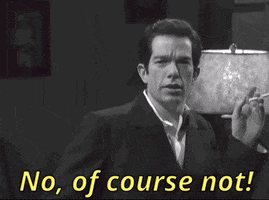When someone is going to argue that positive masculinity is a problem, you know you're going to be in for a ride.
So buckle up for essayist Ruth Whippman's latest for the New York Times, "We Can Do Better Than Positive Masculinity," in which she details her objections to the concept.
Perhaps it's a predictable irony that in an election cycle that could realistically deliver the first female president, so much of the commentary has been about men.
That this bothers her, that "so much of the commentary has been about men" is your first hint.
The second is less a hint and more a sledgehammer right between the eyes.
Or rather, not about men exactly, but about "masculinity." Because somehow, in 2024, we still find ourselves unable to talk about men and boys without using masculinity as the basic frame of reference.
Somehow, she notes in exasperation, in this highly advanced progressive year of 2024 when men can join women's sports teams and it's considered "book banning" when parents call on public schools to deny access to pornography to second graders, we still "talk about men and boys... using masculinity as the basic frame of reference."
Okay, I'm willing to take a shot at this little mystery, maybe clear up a few of these brain teasers for Whippman:
Because they are men and boys.

Before we take a deep dive into this piece, let's add some context first by examining some of Whippman's earlier work.
Her piece from about five years ago, "Enough Leaning In. Let's Tell Men to Lean Out," she starts out well enough.
If parents were giving their children virtue names today, as the Puritans used to do, nobody would choose Charity or Grace or Patience. Instead, half of all baby girls born in America would be named Empowerment or Assertiveness.
She goes on to bemoan the fact that women have been relentlessly encouraged by our culture to adopt masculine traits and behaviors. I actually agree with her in the sense that women should not try to act like men, primarily because they aren't, but she ends up going off the rails in terms of a solution pretty quickly.
She spends quite a bit of time citing the typical litany of feminist complaints including the completely discredited "wage gap" along with quick grievance checks like "corrosive gender hierarchies" to keep her readers feeling adequately oppressed.
She then explores the manner in which feminine traits are undervalued.
As a rule, anything associated with girls or women — from the color pink to domestic labor — is by definition assigned a lower cultural value than things associated with boys or men. Fashion, for instance, is vain and shallow, while baseball is basically a branch of philosophy.
This is such a strange thing to say. Fashion is everywhere, and routinely celebrated in the media. Who devalues it? Men? So what? Women love to point out that baseball, and all of professional sports fandom for that matter, is stupid. We don't care. We know it's stupid. We still don't care.
(Hint: That's a masculine trait.)
Tax dollars are poured into encouraging girls to take up STEM subjects, but no one seems to care much whether boys become nurses.
Well, that's because why should we care? Boys do choose to enter the profession, topping out at about 12% to 13% of all nurses, suggesting that's how many want to be nurses. Great, why would we want pressure more to take a profession they don't want to?
As for STEM, perhaps you have less participation by women for the same reason you have less participation by men in nursing: because it doesn't interest them as much.
Maybe, just maybe, men and women and different!

Girls are routinely given pep talks to be "anything a boy can be," a glorious promotion from their current state, whereas to encourage a boy to behave more like a girl is to inflict an emasculating demotion.
You can see where she is going with this. Rather than stop trying to force more women into careers they clearly don't want to be in, she wants to force more men into careers they clearly don't want to be in.
That way, men can be as miserable as she is!
And here is where we move on to the misandrist part of our program.
Rarely do we stop to consider that many of life's problems might be better explained by the alternative titles "Men Who Love Too Little," " … Think Too Little," " … Worry Too Little" or " … Do Too Little." But instead we assume without question that whatever men are doing or thinking is what we all should be aiming for.
Whoa, lady, I was just trying to eat my sandwich here.
Now the assertiveness movement is taking this same depressingly stacked ranking system and selling it back to us as feminism. We in turn barely question whether the male standard really is the more socially desirable or morally sound set of behaviors or consider whether women might actually have had it right all along.
Ah. And there we have it.
The problem isn't that one gender is being forced to adopt the characteristics of the other, the obvious solution to which is to not do that.
It's that the WRONG gender is being forced to adopt the characteristics of the other.
Her essay could have been about valuing feminine traits and eliminating the pressure on women to behave like men, but no, she wants men to be pressured to behave like women instead.

So perhaps instead of nagging women to scramble to meet the male standard, we should instead be training men and boys to aspire to women's cultural norms, and selling those norms to men as both default and desirable.
Oh, and she really, really, does not like men, or at least "masculine" men.
So, yeah, men.
It would be a challenge, for sure. Pity the human resources manager trying to sell a deference training course to male employees. She would need to paint all the PowerPoint slides black and hand out Nerf guns just to get started.
Yep, imagine seeing an essay in the Times about issuing women CEOs extra hankies to dry their eyes when they cry over an earnings report.

She then issues a call to arms!
So H.R. managers and self-help authors, slogan writers and TED Talk talkers: Use your platforms and your cultural capital to ask that men be the ones to do the self-improvement for once.
I can't get over the fact that it never occurs to her that to solve the problem of pressuring women to adopt masculine traits, we just stop pressuring women to adopt masculine traits. Women do just fine in the workforce not being men. I've seen it for decades up close and personal.
But no, she wants revenge. She wants men to pay for... what? What feminists have done to women?

Stand up for deference. Write the book that teaches men to sit back and listen and yield to others' judgment. Code the app that shows them where to put the apologies in their emails. Teach them how to assess their own abilities realistically and modestly. Tell them to "lean out," reflect and consider the needs of others rather than assertively restating their own. Sell the female standard as the norm.
Wow, she really does not like men. She married one, it seems, but, yeah, she does not appear to be particularly fond of the species.
Earlier in the piece she ridicules the purportedly masculine act of doing a "power pose in the bathroom before meetings," which it turns out was a set up for the punchline for the paragraph above (and really the whole essay):
Perhaps some capitulation poses in the bathroom before a big meeting might help.
It's easy to toss out zingers when all you're dealing with are straw men of your own making.
I've worked in the business world my entire adult life. I have never seen nor heard of a man striking a "power pose" before a meeting. I've seen it in movies, usually for comic effect or to designate a character as a vain, officious buffoon, but never in real life. I personally will check to make sure I don't have anything stuck between my teeth and my hair doesn't look like I'd woken up two minutes earlier, but that's less a power pose than a good grooming habit.
Men in real life already show deference and sit back and listen and yield to others' judgment depending on the circumstances. I see this on a weekly basis, dealing with both other men and women. Other times we'll be confident and make our voice heard and stand our ground, Also depending on the circumstances.
And yes, men "capitulate." Ever see a manly MMA fighter tap out? That's what capitulation is. Men play a lot of sports, they know how to lose. It's not some foreign concept to them.
It's almost like men are actual people, maybe even complicated human beings in their own right!

On her website, she notes that "Fortune Magazine described Ruth as one of the 'sharpest minds of the decade...'"
Then why does she traffic in such absurd tropes and caricatures? Are we really supposed to take any of this seriously?
Sometimes I feel like popular culture has become one big troll.
One more quick(er) detour: In an essay from two years ago, Can We Really Love Our Children Unconditionally?, she writes,
Given the familiar guilty exhaustion that the phrase "unconditional love" evokes in me, I should have sniffed out that there was some sexism buried in the idea....
And so it was. The concept is believed to have originated with the German psychoanalyst Erich Fromm in 1934, as a way of distinguishing the unwavering, selfless love of a mother from the inherently more conditional love of a father, whose love needs to be "earned" with good behavior and success.
You're not imagining things.
She literally had to go do research to find a reason to be outraged.
Picture her excitement when she found what she was looking for. "Aha!" She likely exclaimed, knocking her chamomile tea all over her first edition of I Dissent. She had successfully unearthed proof that that the phrase "unconditional love" had sexist origins.
This is how the grievance industry works, it's like a gold mining operation, extracting outrage ore to be refined into shiny new books and TED Talks.
Repeat after me:
It. Doesn't. Matter.
I'm obviously familiar with the phrase, "unconditional love," but not once did it ever occur to me that it applied to my wife more than to me nor was it sexist in any way, any more than it occurred to me that one of a hundred innocuous ice cream truck jingles was briefly used in minstrel shows a 100 years ago.
Normal, emotionally well-adjusted people do not think this way, primarily because normal, emotionally well-adjusted people don't go out of their way to find things to be miserable about. Origins are interesting historical artifacts, but in terms of modern meanings, when that origin is long forgotten outside of historians and unhappy feminists, it's irrelevant.
Let's get back to Whippman's most recent essay, because she's been building up to something for some time. You can see her fury building.
The electorate is faced with a choice, the story goes,...
"The story."
...between two models for masculinity. Toxic versus positive. In response to the vein-popping, furious, felon model of the right, the left is offering us a more morally upstanding and expansive "positive masculinity."

"Positive masculinity" has been around for a while. Most likely coined in early 2000s by psychologists as a way of working with male patients in therapy, the term has now become the go-to framework for the wider progressive discussion about boys and men.... Masculinity has had an unfairly bad rap, its proponents argue, becoming permanently shackled to the word "toxic." Positive masculinity is an attempt to rebrand and reinstate it for the next generation, often with the claim that unlike the insecure posturing of the shirt-ripping strongmen, this is, in fact, "real" manhood.
Not good enough for Whippman, not even close.
There is a lurking sexism in the whole positive masculinity conceit. If we have to attach the label "masculine" to a behavior before it can have value to men, then we are subtly communicating that embracing anything associated with women is a demotion, even an indignity.
Sound the alarm bells! Sexism is lurking!

What she is saying here is if you call something masculine, including a man, it's somehow an automatic affront to women.
"Positive masculinity" is not about de-gendering universal human qualities, and certainly not about encouraging boys to believe that they could have something to learn from women or female cultural norms.
Well, yes, "positive masculinity is "not about encouraging boys to believe that they could have something to learn from women," but that's because not everything is about you, Whippman, and your obsessions.
And positive masculinity is also "not about de-gendering universal human qualities" either.
And here is where we really get down to what she's after.
No genders, or at least, no "men."
These attempts to expand the definition of what can be considered masculine end up reinforcing the idea that masculinity itself is sacrosanct, so fundamental to male worth that boys must never abandon it altogether.
She's still missing the forest for the trees.
All humans, regardless of gender, have the capacity and the need for toughness and fallibility, gentleness and emotionality, wild courage and tender nurture. If we really want to help boys break free and find more expansive and healthier ways to show up in the world, it's not "positive masculinity" that they need, but full humanity.
And there you have it.
All boys and men have to do to satisfy Whippman is to abandon the very concept of masculinity.
Oh, she throws a few bones out there, conceding that,
None of this is to say, of course, that there are not many positive qualities associated with masculinity. Strength, bravery, heroism, physical toughness and even emotional stoicism in the right contexts...

Note also, that nowhere does she suggest that "if we really want to help girls, break free" we should "find more expansive and healthier ways to show up in the world," but I imagine that's her ultimate goal as well, to eliminate the concept of man and woman, to be replaced by human, a sea of androgyny, of sameness.
What a sad, dreary, dull world, that would be.
Whippman has a book out called "Boymom, Reimagining Boyhood in the Age of Impossible Masculinity" in which she chronicles her challenges in raising her three young boys to be something other than boys when they insist on behaving like, well, boys. It is actually comical at times, but I won't get too deep into that because it involves her kids, but in her essay she includes excerpts about boys' struggle to live up to the modern standards of masculinity, or at least what they perceive to be the modern standards.
As research for my book "BoyMom," I interviewed boys from many situations and backgrounds, and this fear showed up keenly. Masculinity didn't seem to be so much a source of pride for them as a nagging cause of anxiety. The boys told me either explicitly or implicitly about how the pressure to meet some unattainable standard for manliness weighed on them, forcing them into a kind of posturing rigidity and creating a constant background level of fear.
The pressure to be tough and masculine came from all sides — from social media and movies, from parents (especially fathers) and teachers and peers. "I have it ingrained in me that I have something to prove at all times," as one 20-year-old described it. "There's a feeling of never being enough."
Whippman never considers that this is an obvious and predictable reaction to the endless demonization of boys and manhood in our current culture. In the very beginning she takes note that "positive masculinity" is a reaction to "toxic masculinity" but nothing happens in a vacuum. Boys and men have been told they are at best worthless, and at worst, inherent sexual predators. They are told it's sexist if more men than women are physicists, but not if more women than men are veterinarians, and don't you dare question that logic, you sexist pig.
Boys aren't as quiet and studious as girls, so let's drug them up, and heaven forbid we expand recess for them to release some of their testosterone-fueled energy. No, sit down and be quiet like your sister!
This is what men see all the time.
No wonder they are rebelling.
I can tell you I have not raised my son to be hyper masculine, whatever that means. Certainly not the "vein-popping, furious, felon model" Whippman has conjured up. Instead I try to act as a role model, a complete human, but also a masculine one. A man.
You can have both your masculinity and your humanity at the same time. It's really not complicated and no, you don't have to sit around and obsess over it. In fact, I've probably doubled the time I've spent in my life thinking about it writing this piece.
Let me leave you with this.
Earlier in her essay, Whippman writes this:
The model is not a radical departure. Positive masculinity still draws on all the old trappings and anxieties of traditional manliness, the same belief that there is such a thing as a "real man" and the same fears of falling short. As its political standard-bearer, the Democratic vice-presidential nominee, Tim Walz, is still required to constantly prove his masculine credentials. It is only by presenting as a man's man and a veteran who loads his speech with sports metaphors and gun references that he earns the social leeway for his more feminist sensibilities.
Setting aside partisanship and policy disagreements, there is this ongoing attempt, as Whippman points out, to make Tim Walz appear more masculine. They make sure to depict him in blaze orange and camo hats and promote his YouTube videos offering car maintenance tips and so on.
In other words, they're trying too hard.
In contrast, in most every campaign appearance I've seen, Trump and Vance are wearing a suit and tie. Yes, you'll see Trump in a golf shirt and men like golf and all, but it's not like the Navy Seals are sending their recruits to golf camp to "toughen up."
Like most men, they don't feel the need to play into a masculine stereotype to be masculine. They go about their lives confident and comfortable in their own skin. People sense that, no matter how many feminine traits you may also exhibit people know instinctively when they are in the presence of a man.
And when they are not.
We don't need a culture that demonizes and de-masculinizes men any more than it already does, and we don't need them to embrace femininity as some kind of antidote either, like they have a disease that needs to be cured.
We just need a culture that values masculinity as much as it does femininity and for that we need one thing most:
For men to be men.
P.S. Now check out our latest video 👇
Disclaimer: The opinions expressed in this article are those of the author and do not necessarily reflect the opinions of Not the Bee or any of its affiliates.









